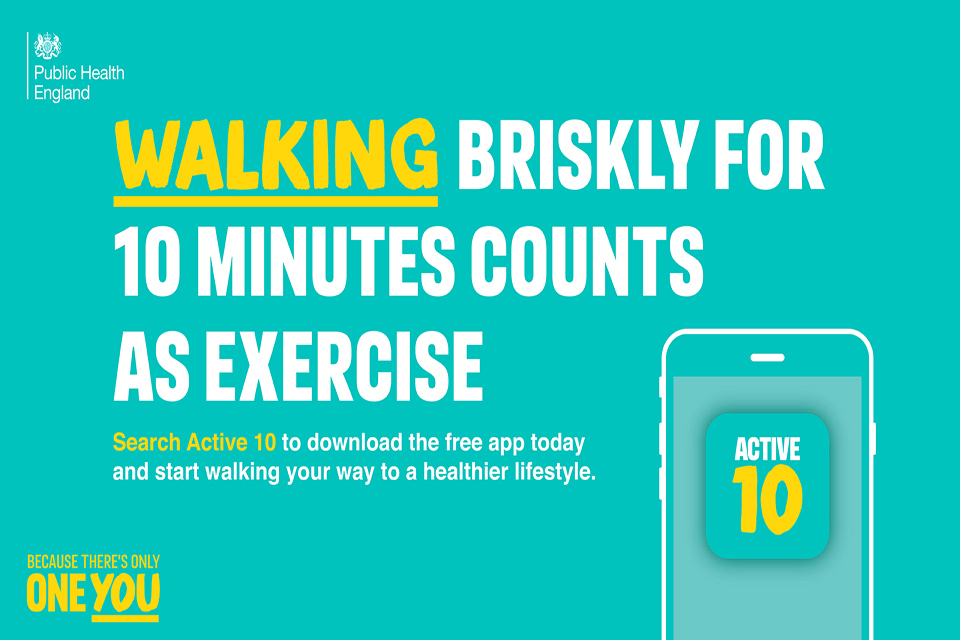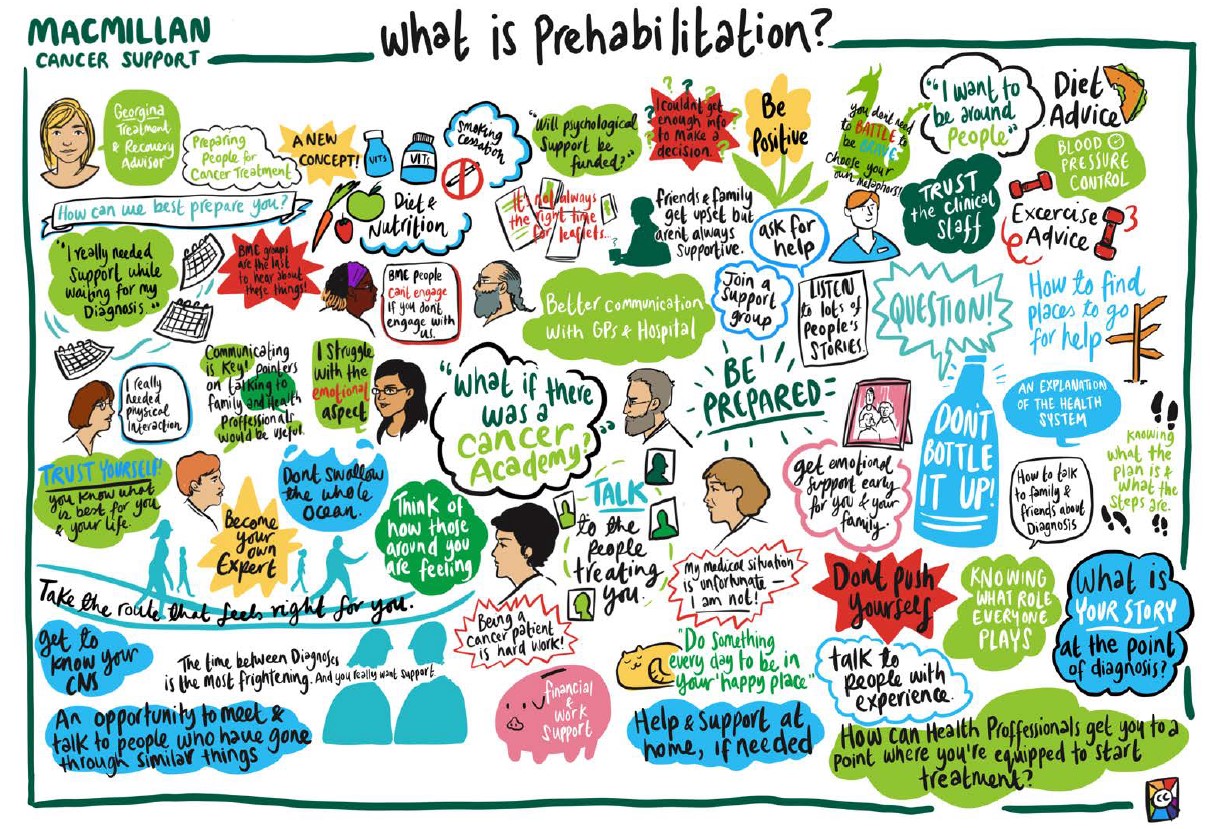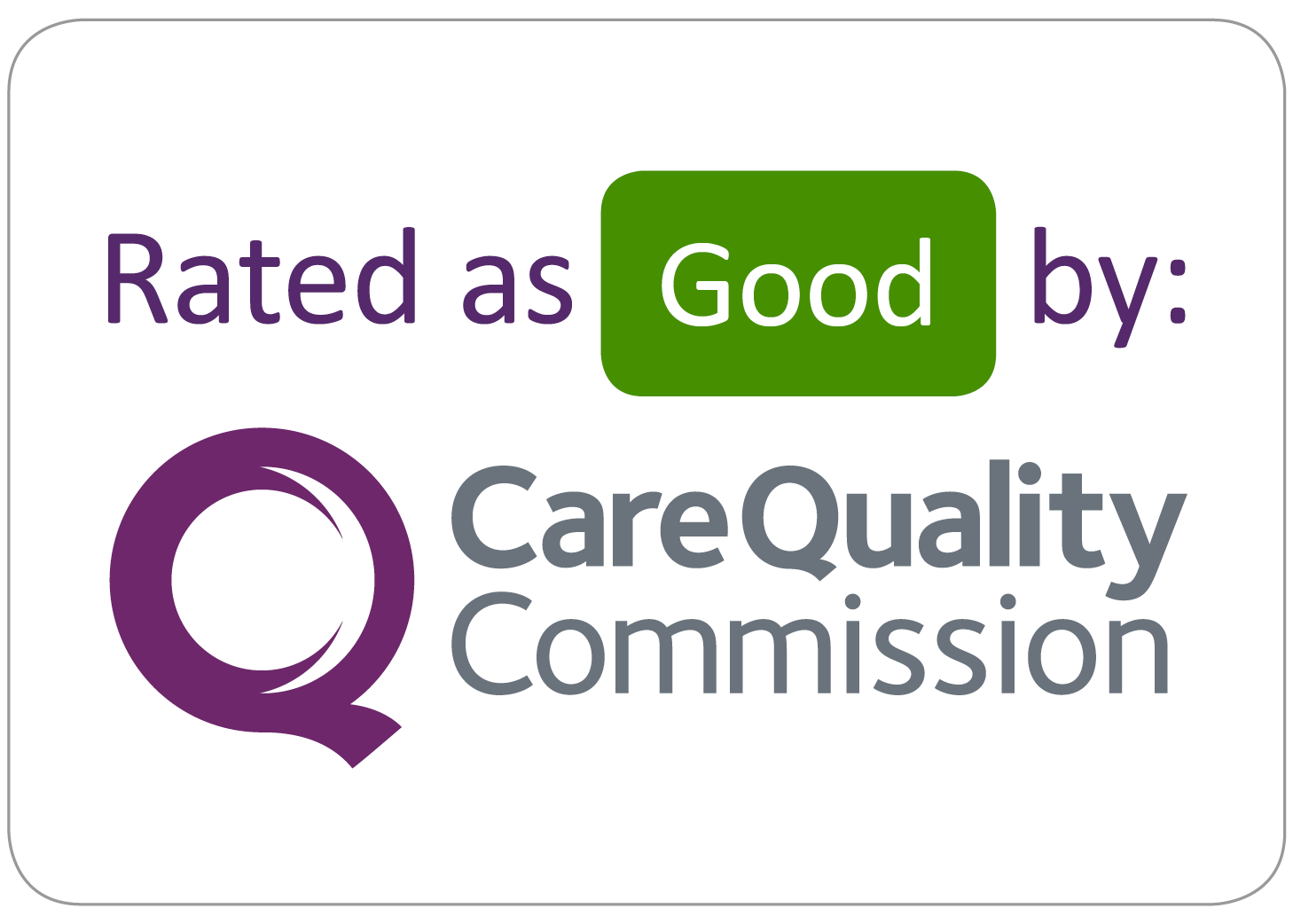Prehabilitation
Prehabilitation (Prehab) this is a process of enhancing function to improve your ability to withstand forthcoming treatment and improve outcomes.
Prehab at Calderdale & Huddersfield NHS Foundation Trust supports patients who are newly diagnosed with cancer, to engage in exercise, nutritional screening and have improved emotional well-being. The importance of preparation ‘Prehabilitation’ and active recovery pathways in cancer are being increasingly recognised by cancer patients and healthcare providers around the world.
Patients will be supported before and after cancer treatments (including surgery, chemotherapy and radiotherapy) and where applicable during treatment to have increased physical activity and fitness. Research suggests patients who undergo Prehab should have improved clinical outcomes, including improved survival rates, greater tolerance to radical treatments and reduced post-operative complications. This should lead to reduced time spent in hospital or need for readmission to hospital.
The following video explains changes you can make to improve health and well being and the benefits. The video focuses on surgery but also applies to people having radiotherapy and chemotherapy treatment.
At Calderdale & Huddersfield Prehabilitation is delivered across the acute and community settings by a variety of professionals. The aim is to help you cope with cancer treatment and feel better, physically and mentally. It is designed to help people take an active role in their cancer care and live as well with and beyond cancer.
What does it involve?
Prehabilitation incorporates many aspects of your health and well-being. The three main components are physical activity, psychological well-being and nutritional support. These three components will be assessed as well as other areas of concern and a personalised Prehabilitation care plan will be developed. We will also support you with other behaviour change such as stopping smoking or alcohol reduction where appropriate.
It includes:
Physical activity to suit your level of ability and fitness
Nutritional assessment and advice
Emotional wellbeing support and onward psychological referral if needed
Support to return to exercising after your cancer treatment
The opportunity for you and your family / friends to meet others in a similar situation
Discounted access to your local leisure facilities before and after treatment
How this aims to HELP YOU:
Better response to treatment
Quicker recovery
Fewer problems during treatment
Reduced anxiety and improved mood
Improved energy levels
Take an active part in your cancer care
Lower chance of cancer recurrence
Improve your general fitness and other health conditions
Be able to do your normal activities
Physical Activity

Emerging evidence suggests that exercise is safe and feasible in the weeks prior to surgery and during chemotherapy and radiotherapy. Cardiorespiratory fitness and lung function has been found to improve in people who participated in early studies of physical activity before surgery, with walking and cycling as examples of activity. Prehabilitation aims to improve patients' exercise tolerance (how much physical work your body can cope with) by steadily building up physical activity over the weeks leading to treatment. This is done by making a physical activity plan, with support if required, to increase the frequency, effort and duration of your chosen activity each week. Lots of patients become deconditioned due to fatigue, poor appetite and poor nutrition because of their illness. We understand that undergoing physical activity can be challenging for these and many other reasons, so Prehab is designed to support you in improving your fitness.
There are many resources which we can provide or refer you to which will help you achieve the goals set. You will find links to these below.
If you are referred for Prehabilitation, you will first have an appointment to assess where you are now and set a personalised plan for the forthcoming weeks. You will then be offered telephone or virtual appointments to provide ongoing support, and advice to meet those goals set. Physical activity can range from a regular walk, a chosen sport or even using your stairs at home. As long as the activity means you feel hot, sweaty and a bit out of breath afterwards it will be of benefit.
In this Podcast you'll hear about the direct benefits of being physically active before, during and after cancer treatment. How Prehabilitation can help you prepare by incorporating activity into your everyday life and the benefits in combating cancer related fatigue.
The Podcast was released during the Corona Virus pandemic to offer advice and support of what you can do as you await treatment. As group interventions cannot take place at the moment it offers advice of what you can do at home.
Is it safe for me to exercise when also having cancer treatment?
Latest research shows it is SAFE and RECOMMENDED to do exercise when you are undergoing cancer treatments.
Diet and Nutrition
For people who are underweight, losing weight and at risk, there is strong evidence that nutritional support is effective at improving nutritional status and improving clinical outcomes, particularly around surgery. People undergoing other treatments including chemotherapy and radiotherapy will benefit from addressing their nutritional needs to an extent where it influences clinical outcomes but it can support a patient's health and well being, mood and activity levels in preparation for treatment. Supporting you eat well to stay well is the primary focus of Prehabilitation. In supporting you eat well it will enable you to participate in physical activity, help you tolerate the effects of treatment, improve quality of life, reduce the risk of further weight loss and help you combat fatigue.
There are many resources which we can provide or refer you to which will help support you. Some of the links to these are below.
If you are referred for Prehabilitation and diet and nutrition is something of a concern, at your first appointment we will establish what the concern is regarding weight loss or weight gain, potential causes for this and the effect this is having on your health and wellbeing. We will also take measurements such as weight, height and grip strength and these will be monitored. A personalised plan will be created with you to follow and also referrals onto specialist services such as a dietician, if required.
This Leaflet offers more information and advice to help support yourself
In this Podcast you'll hear about how to eat well to keep well nourished. Key messages around the important food groups you need to create energy, including the 5 portions of fruit and vegetables a day but also the importance protein has on muscle strength, blood and immune system. What to eat and where to get these vital nutrients from. It promotes the benefits of a balanced diet. Tips for what to eat if losing weight and to not see the term 'diet' as a term of weight loss. Its about maintaining a healthy weight and eating well to stay well and avoiding weight loss before and during cancer treatment.
Psychology and Emotion
Following a review of psychological interventions prior to surgery for cancer it demonstrated that the intervention positively affected patients’ reported outcome measures including psychological outcomes, quality of life, and physical symptoms.
Supporting patients identify how they are feeling, what is to be expected to feel when diagnosed with cancer, what triggers changes to emotions, how to self manage emotions and negative feelings is something Prehabilitation focuses upon.
There are resources and information we can provide you which may help.
If you are referred for Prehabilitation and managing emotions and anxiety is something of a concern for you and impacting upon you health and well being we will complete some screening tools at your first appointment. This will help us to determine what level of support you need and who best to provide this. It may be some general advice and strategies along with weekly telephone support is enough for you, support from your clinical nurse specialist and cancer team may also be of benefit or it may be that our clinical psychology service can offer something more for you.
Emotional Support and Wellbeing
In this Podcast you'll hear about emotional support and wellbeing and the importance of how realising and acknowledging that it is normal to sit with difficult thoughts and feelings when diagnosed with cancer and even more so during the Corona Virus pandemic. It offers information and advice about what these thoughts and feelings are and why they occur and what you can do to help yourself.
Smoking Cessation
Stopping smoking can have many health benefits especially when undergoing cancer treatment. Click the link to the page that provides information about the benefits and the support available to help you stop smoking.
Additional Resources
Here is a variety of resources, leaflets and videos which you can carry out at home.
Physical Activity:
Chief Medical Officer physical activity guidelines
Greater Manchester Prehab4Cancer Programme
The Royal Marsden NHS Foundation Trust Exercise Video
Macmillan Move More Exercise videos
Physical Activity during Chemotherapy and Radiotherapy information Leaflet
Diet & Nutrition:
Healthy Eating and Cancer booklet
Psychology:
How are you feeling/managing emotions
Please click here to view the Macmillan / CHFT Prehabilitation Annual Report for 2021-2022
For more information regarding your health and wellbeing before cancer treatment please see the first steps cancer programme page which can be accessed here or at the tab on the right hand side.



















